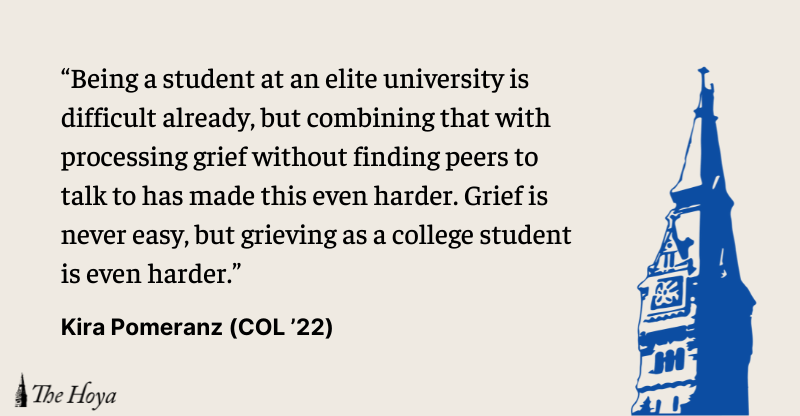CW: This article discusses suicide. Please refer to the end of the article for on- and off-campus resources.
I miss Ben. I miss sleeping on his couch, I miss sending him jokes through his girlfriend, and I miss the way he could make anyone smile. Labor Day weekend was meant to be a fun trip to visit friends and family — including Ben and his girlfriend. On the first part of my trip, I crashed on their couch after my 10 p.m. train rolled into 30th Street Station. The next day I was off to my hotel, and after falling asleep in a real bed — and not on Ben’s couch — I woke up to a text that I thought was a prank.
“Hey guys, I’m sorry to let you know in this way. Ben passed away early this morning.”
There were no warning signs, but still I was filled with remorse — what if I had stayed at their apartment one day longer, what if I said something wrong or what if there was never anything I could do to stop it?
When I received the email about options for fall 2021 Counseling and Psychiatric Service (CAPS) therapy groups, I was confused to see the website and the email had discrepancies. I replied to ask if there was a grief support group after seeing that one wasn’t listed in John Loughlin-Presnal’s email about CAPS groups. His response was short and bitter: “The group is not being offered this semester at CAPS.”
I wish my experience was isolated, but it’s not. I am by no means the only student coping with intense levels of grief right now. Not only have there been over 750,000 deaths from the COVID-19 pandemic in the United States, but out of the pandemic, there has come a suicide epidemic. Over 90% of students are experiencing worsening mental health as a side effect of the pandemic. Grieving students need mental health resources on campus now more than ever.
Being a student at an elite university is difficult already, but combining that with processing grief without finding peers to talk to has made this even harder. Grief is never easy, but grieving as a college student is even harder.
It can be difficult for students to establish a strong support system in college. Many travel far from home to attend school, leaving family and friends who can provide comfort far away. Although professors usually empathize with students, grieving students’ rigorous academic demands are still present. Many students who are well acquainted with each other aren’t comfortable enough to share details, and well-meaning questions from peers such as “How are you?” can hit like a ton of bricks.
Right now, students at University of North Carolina at Chapel Hill are coping with two confirmed suicides by students this semester and reports of another student who attempted to take their own life, which have led to nationwide protests for better mental health services.
Schools have responded to loss of life on campus in various ways: with free yoga, ice cream or prayer services. After two students at Saint Louis University died by suicide within days of each other, the university canceled classes for a day. But students didn’t want wellness walks — they wanted more mental health resources as they grieved. Over 9,000 people signed a petition asking for SLU to provide more counselors and more free counseling sessions for students and to allow students to choose counselors that can work with their busy schedules.
What has been the hardest for me in my grief process is feeling detached. While my friends fretted over midterms, papers and social life, I was struggling to get out of bed every day. I want to be able to empathize with people, but whenever I tell someone about my situation, I get the usual “That must be so hard” or “I’m sorry for your loss,” which, although nice to hear, won’t make me feel less isolated.
After reaching out to CAPS about grief support groups, I got a reply from Loughlin-Presnal saying that I could meet with CAPS to find support groups in the Washington, D.C. area, but as a busy college student, I wanted a program that was on campus and had other people my age in it. Grief support groups outside of college campuses tend to skew older, and I wanted to confide in people who are grieving in a similar environment.
When I first met Ben, I told my best friend that if Ben ever broke her heart, I would kick his ass. Just like how beating a dead horse is futile, so is kicking a dead friend’s ass. But what wouldn’t be futile would be communicating with other students coping with loss with a mental health professional.
Georgetown University prides itself on cura personalis — care of the whole person. But when I needed it to take care of my mental health, it abandoned me.
Kira Pomeranz is a senior in the College.
Resources: On-campus resources include Health Education Services (202-687-8949) and Counseling and Psychiatric Service (202-687-6985); additional off-campus resources include the National Suicide Prevention Hotline (1-800-273-8255).














